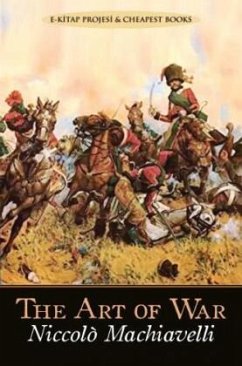The Art of War (Dell'arte della guerra), is one of the lesser-read works of Florentine statesman and political philosopher Niccolò Machiavelli.The format of 'The Art of War' was in socratic dialogue. The purpose, declared by Fabrizio (Machiavelli's persona) at the outset, "To honor and reward virtù, not to have contempt for poverty, to esteem the modes and orders of military discipline, to constrain citizens to love one another, to live without factions, to esteem less the private than the public good." To these ends, Machiavelli notes in his preface, the military is like the roof of a palazzo protecting the contents.Written between 1519 and 1520 and published the following year, it was the only historical or political work printed during Machiavelli's lifetime, though he was appointed official historian of Florence in 1520 and entrusted with minor civil duties.Many, Lorenzo, have held and still hold the opinion, that there is nothing which has less in common with another, and that is so dissimilar, as civilian life is from the military. Whence it is often observed, if anyone designs to avail himself of an enlistment in the army..
Bitte wählen Sie Ihr Anliegen aus.
Rechnungen
Retourenschein anfordern
Bestellstatus
Storno








